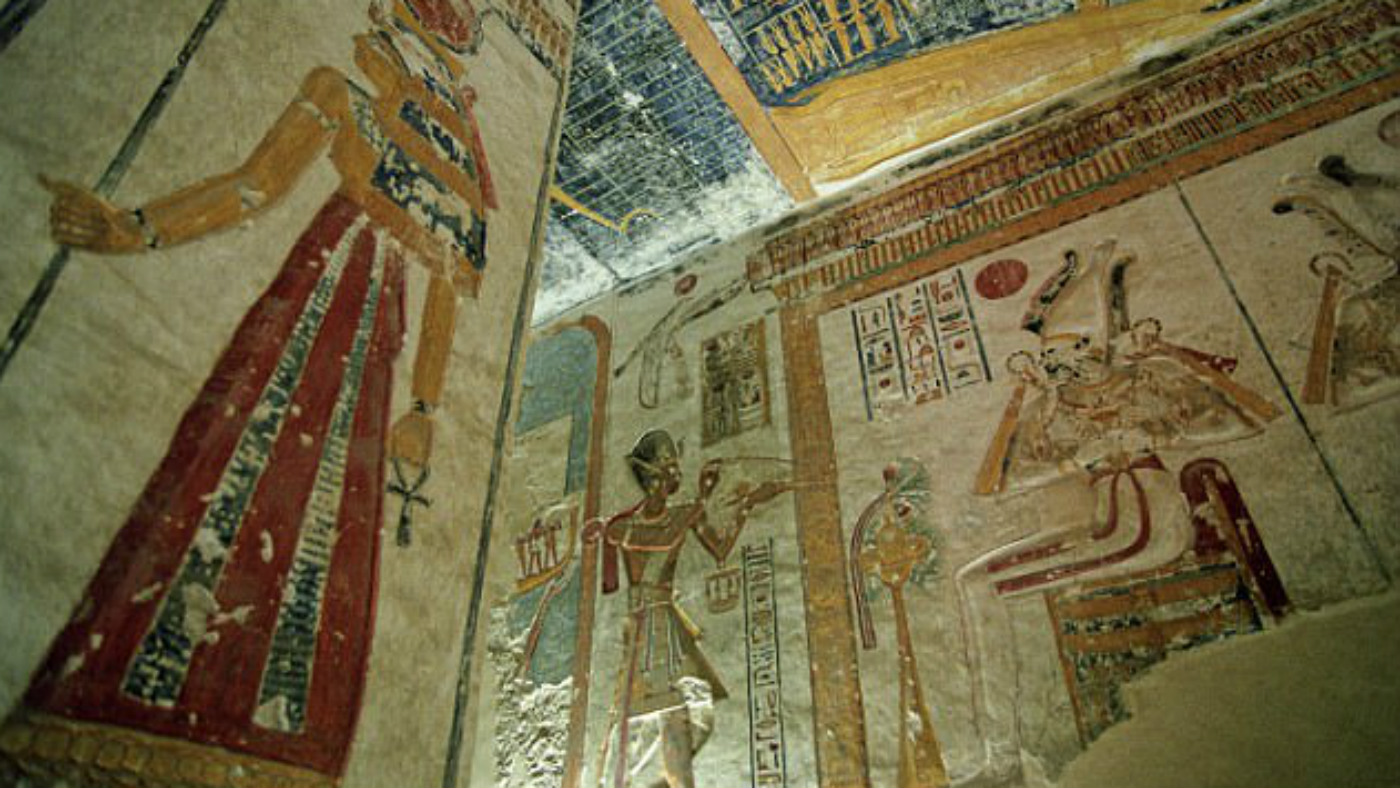Scientists uncover 'Tripadvisor for the ancient world'
'I visited and I did not like anything except the sarcophagus,' says one 1,000-year-old carving in Ancient Egypt

A free daily email with the biggest news stories of the day – and the best features from TheWeek.com
You are now subscribed
Your newsletter sign-up was successful
Scientists from the University of Warwick believed they may have uncovered one of the oldest versions of the online review website Tripadvisor, in a series of carvings on ancient Egyptian frescoes.
The marks have been studied by a Polish team of archaeologists working in the Valley of the Kings, where visitors etched their thoughts into artworks and on walls 1,000 years ago.
Among the carvings were some familiar reviews: "I visited and I did not like anything except the sarcophagus", "I admired", and "I can't read the hieroglyphs."
The Week
Escape your echo chamber. Get the facts behind the news, plus analysis from multiple perspectives.

Sign up for The Week's Free Newsletters
From our morning news briefing to a weekly Good News Newsletter, get the best of The Week delivered directly to your inbox.
From our morning news briefing to a weekly Good News Newsletter, get the best of The Week delivered directly to your inbox.
Then there was the one visitor "who clearly became so overwhelmed by the stupidity of other travellers that, like an early version of a futile online argument, they were moved to respond," says The Times.
"Why do you care that you cannot read the hieroglyphs?" came the riposte beneath the earlier complaint. "I don't understand your concern."
Much like the contemporary online review website, not all of the markings were so elaborate. Some markings "were found to be the equivalent of 'John Smith was here', with the names of people who visited the tomb written in Greek or, less frequently, in Latin," says the Daily Mail.
Professor Adam Lukaszewicz, an archaeologist from the university who led the research, said: "The Valley of the Kings was a tourist destination already in antiquity."
A free daily email with the biggest news stories of the day – and the best features from TheWeek.com
"Like today, tourists often signed their names in the places they visited. Among the more than 60 tombs in this area, in at least ten there are inscriptions made by ancient travellers."
A clue as to why this seems to have been such a popular practice "lies in the accounts of the first western European travellers, who said that Arab guides provided them with sharp objects to sign their names," says The Times.